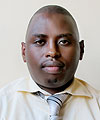Rwandans are eagerly awaiting two major events this week. First is a report of a French investigation into the cause of the April 6, 1994 shooting of the Falcon 50 jet that killed the then Rwandan president Juvenal Habyarimana and his Burundian counterpart, Cyprien Ntaryamira. The inquiry was launched by Judge Mark Trevidic after the disgraceful report by his predecessor, Jean Bruguiere, which blamed the RPF for the attack and effectively indicted nine top Rwandan government and military officials. It is hard to predict the likely outcome of the inquiry. The Rwandan government has been cautious not to predict what might come out of yet another French inquiry – since Bruguiere’s own investigation proved that judicial proceedings in the West are highly susceptible to political manipulation after all.


Rwandans are eagerly awaiting two major events this week. First is a report of a French investigation into the cause of the April 6, 1994 shooting of the Falcon 50 jet that killed the then Rwandan president Juvenal Habyarimana and his Burundian counterpart, Cyprien Ntaryamira.
The inquiry was launched by Judge Mark Trevidic after the disgraceful report by his predecessor, Jean Bruguiere, which blamed the RPF for the attack and effectively indicted nine top Rwandan government and military officials. It is hard to predict the likely outcome of the inquiry. The Rwandan government has been cautious not to predict what might come out of yet another French inquiry – since Bruguiere’s own investigation proved that judicial proceedings in the West are highly susceptible to political manipulation after all.
But Kigali has a reason to remain hopeful. Other than the ever-present conscious of innocence in the RPF camp, there is the highly meticulous work by the Mutsinzi Commission, which concluded, in January 2010, that an extremist unit within the then government army (FAR) was responsible for the attack – a finding backed by UK ballistics experts. No doubt, the Rwandan report into the bloody incident will continue to be the country’s main reference about the crash.
That Judges Trevidic and Nathalie Poux’s work is more credible than Bruguere’s is an open secret. Unlike the Bruguiere team, Trevidic and Poux visited Rwanda, interviewed witnesses and talked to some of the people who were accused – yet not interviewed – by the Bruguiere inquiry. Following a hearing in Bujumbura, Burundi, of six officials indicted on Bruguiere’s orders, Trevidic lifted their arrest warrants, apparently because he found serious flaws in his predecessor’s work.
The scientific approach, with which Trevidic handled the case, at least in its early stages, is enough to conclude that his work will enjoy far more credibility than his predecessor’s.
Nonetheless, that Trevidic and co. observed basic research techniques in their investigation is, by no means, a guarantee they will deliver genuine findings. If the previous French investigation was openly manipulated for political gains, why not the second time? What confidence do we have the entire process was open and fair up till its conclusive end? Why did the French have to commission another probe into the same incident, just months after the Mutsinzi Commission released its report, backed by UK ballistic evidence?
Whatever the outcome, however, we can only hope that the probe will help heal the wounds caused by the crash and continually exacerbated by the resultant empty lies and politically-motivated narratives. We can also hope that the report and the reaction from either side will not undo all that Kigali and Paris have done over the past two years to put their diplomatic ties back on track. Rwandans are keen to see the incident and all that is associated with it finally confined to books of history with a common a narrative; as they continue the quest to build a united, all-inclusive and prosperous nation.
Another event that is highly anticipated is the imminent deportation of Leon Mugesera from Canada back to Rwanda, where he infamously made one of the most, racially-charged remarks in recorded history. During a public speech in 1992, he called on the Hutus to behead the ‘cockroaches’ (Tutsis) and send them back to Abyssinia (read Ethiopia) through River Nyabarongo. Mugesera later that year left the country but his insidious language incited masses to commit experimental killings, since then until April 1994, when Genocide unfolded.
With the Canadian Supreme Court having unanimously ruled that Mugesera was inadmissible to stay in Canada due to his links to the Genocide, almost eight years ago, it looks increasingly clear that the former university professor is finally destined for deportation, where he will certainly stand trial for his actions.
His defence team has lately launched into what looks like a media blackmail crusade against the Canadian government, even going to the extent of claiming their client faces death upon setting foot in his motherland. They forgot that the US has deported at least three Genocide suspects to Rwanda, two of them only last year, and none of them has suffered the fate Mugesera’s lawyers have predicted for him. They also ignore the fact the International Criminal Tribunal for Rwanda (ICTR) will soon transfer one of their inmates, Jean Uwinkindi, to Rwanda to stand trial; and that more Genocide-related deportations and extraditions are expected following last year’s seal of approval by the European Court of Human Rights.
Yet, on the contrary, having abolished the death sentence only 13 years after the Genocide, Rwanda stands out as one of the countries that highly uphold human life. Mugesera can be assured of a fair trial and have the courage to account for his alleged criminal past.
james.munyaneza@newtimes.co.rw
Twitter @jmunyaneza


